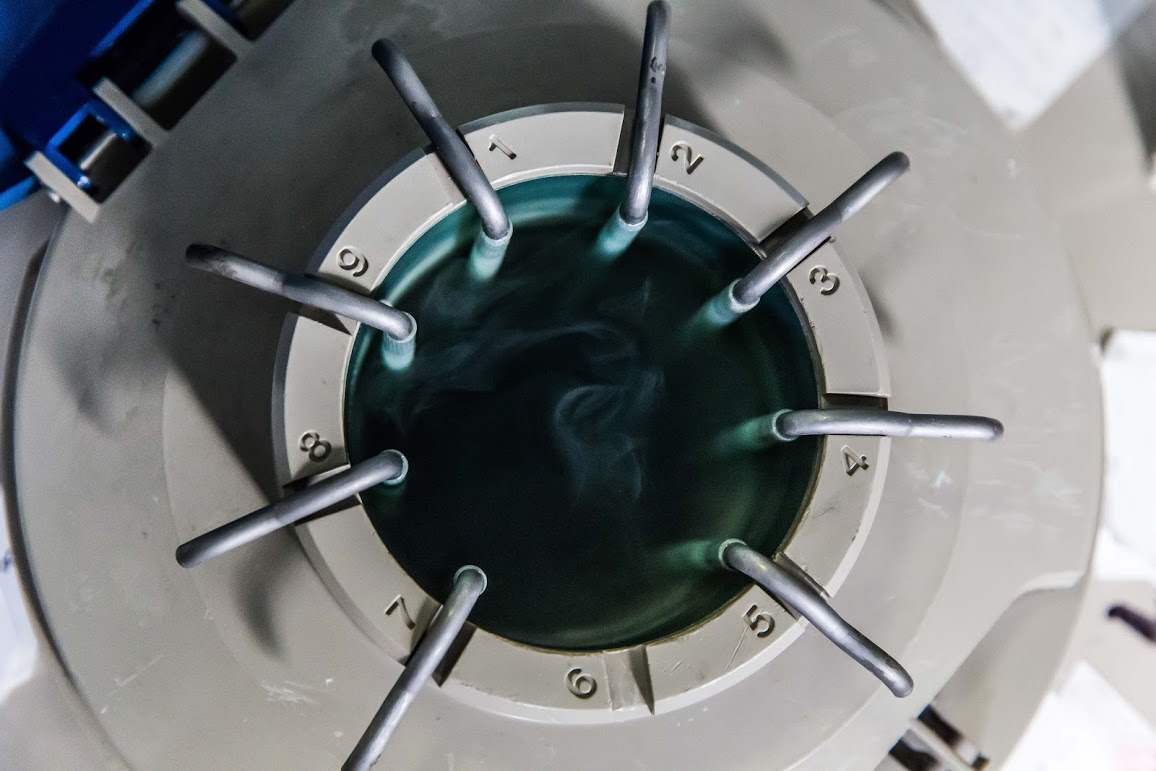The cryogenic laboratory is an integral part of KRIOBANK’s Infertility Treatment Centre, dedicated to the cryopreservation of biological materials. From the point of view of patients being treated for infertility, the most important cryogenic applications are cryopreservation of sperm and isolated reproductive cells (Sperm Bank), and embryos (Embryo Bank). The ability to use donor semen, depositing your own semen for later use, and freezing and storing embryos are the most common services we provide during infertility treatment.

Often our patients are men who, after several semen analyses and testicular biopsy are diagnosed with azoospermia. This situation completely excludes the possibility of pregnancy. Azoospermia, except for cases caused by obstruction of the seminal tract (obstructive azoospermia) or hypogonadotropic hypogonadism, is usually irreversible, and conservative treatment has no positive effect. In this situation it is possible to use anonymous donor banks. KRIOBANK, as the first and currently one of few institutions in Poland, offers help to couples in whom the man does not produce sperm. Donor sperm may be used for insemination or IVF treatment.
It has been proven that sperm can be stored at very low temperatures for many years, without losing the ability to fertilize. This is extremely important for men whose fertility may be threatened in the near or distant future. This would most likely occur due to treatment of testicular cancer or other organs and systems that require the use of chemotherapy or radiant energy. Very often, side effects of such treatment are significant impairment of the male reproductive function, or complete and irreversible infertility. There are also other clinical situations where treatment has a high risk of complications, resulting in significant impairment or damage to reproductive functions. A typical example is testicular atrophy occurring after undergoing a varicocelectomy.
When these situations occur in young men who have not yet completed their reproductive plans, it is possible to deposit some semen, preferably a few batches, for storage. It will await the right time to start a family, providing a chance for having one’s own offspring. It is preferable for the sperm to be deposited prior to starting primary treatment. In some men with critically low semen parameters, sperm appear sporadically, once in a while, which makes access to them “on demand” difficult. When planning in vitro treatment in this situation it is necessary to obtain sperm earlier and freeze them to ensure treatment will be possible. In this case we use unique methods of cryopreservation of single, live sperm in ovarian casings.
For long-term sperm storage it is necessary to stay in constant contact with KRIOBANK and inform us of changes in address, as well as confirm annually the request to store the deposit.
A routine KRIOBANK practice is the short-term deposition of semen by all patients being prepared for treatment. This ensures that it is available at all times, and provides the opportunity to complete treatment without the partner’s presence, as well as protect against the unexpected deterioration of its quality.
Approximately 30% of IVF patients receive more embryos than can be used in one transfer. This is due to the following facts. The number of embryos transferred to the uterus is limited to one or two at a time. This is to prevent multiple pregnancies in accordance with the recommendations of all world organisations and expert bodies. Unused embryos are reared for five days and once they exhibit normal late embryonic development (reaching the blastocyst stage), they are cryopreserved. Freezing early embryos (up to the second day) is not recommended because most of them stop developing due to developmental disorders, mainly (85%) of genetic origin. Cryopreservation of embryos is a very complicated procedure that requires the use of advanced methods and equipment.
Frozen and stored embryos are the exclusive property of patients (biological parents) and await their decision as to the transfer. Most often it is postponed, because in the group of patients who froze embryos the efficacy of treatment reaches 60%. During their storage period, parents must contact Kriobank regularly, informing them of any changes to their addresses and telephone numbers.
In vitro patients have the right to limit the number of fertilized oocytes, which eliminates the possibility of excess embryos, and hence the need to freeze them. We respect this decision and adhere to the requests of future parents.

